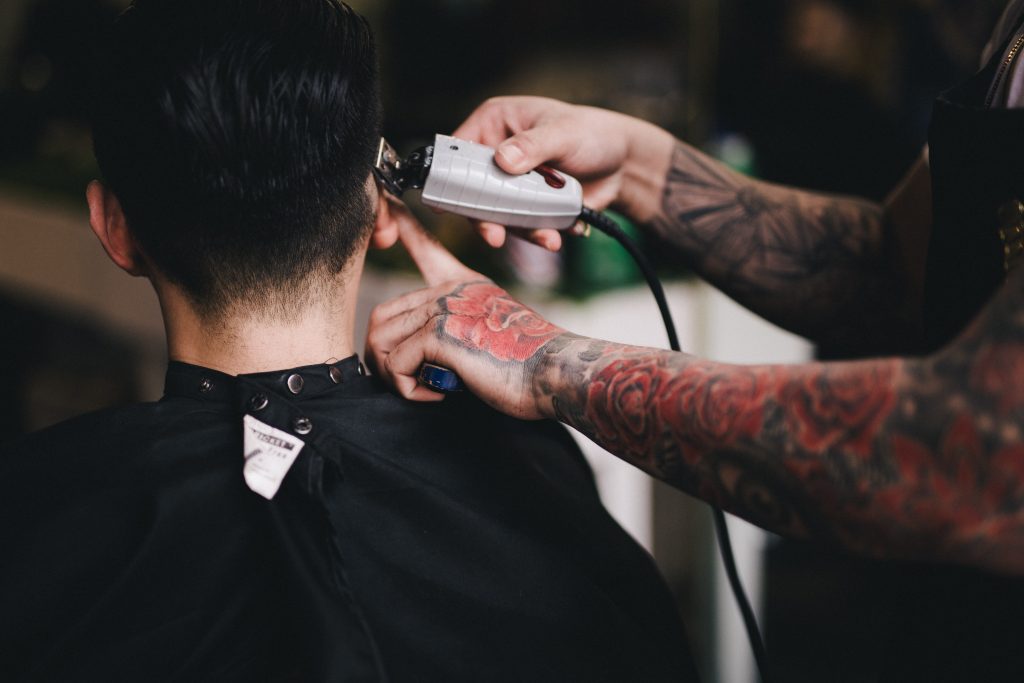Hands up if you’ve ever been advised not to get a tattoo in an overtly visible area in case it affects employment opportunities?
Chances are that’s a fair few of you.
But despite the forewarnings from our elders, tattoos are very much an integral fabric of society today, particularly amongst young people. In fact, it’s suggested that nearly a fifth of UK adults have had tattoos, with those under the age of 40 more likely to have them.
Tattoos in the workplace is not a new topic of discussion. However, it’s important that those with tattoos are familiar with their rights in the workplace and the discrimination that can arise during the recruitment process.
Here’s everything you need to know about body art at work.
Recruitment
The UK Equality Act 2010 protects job hunters from a large range of diversity prejudice, from age and gender, to nationality and disability.
However, body art is not a characteristic that is protected by workplace equality law. As a result, prospective employers can make their hiring decisions based on tattoos if they wish.
However, job opportunities are improving for those with body art.
While once upon a time many customer-facing organisations were not open to hiring those with tattoos, many have now adopted a no-visible-inking policy. Some of these organisations include airlines, the police and even McDonalds.
This means that it’s now possible for those with easily concealed tattoos to apply for a greater range of roles, although if a no-visible-inking policy is in place, candidates are likely to be asked to provide photographs of all inkings with a visible measure for scale.
In the workplace
Businesses are within their rights to have rules in place around appearances in the workplace. This is because dress codes can help maintain professionalism, company branding, and even company atmosphere.
However, it’s important that the standards are appropriate for the business, staff and company culture and are not solely based on personal preference.
We’ve all seen the headlines about heels at work…
If your tattoos go against company policy, then your employer can dismiss you and you are not protected by the law. Therefore, make sure you are aware of the dress code in your place of work so you know where you stand.
How to make tattoos work for you
Despite the statistics, policies and general perception of tattoos, they don’t necessarily have to be a hindrance for you at work.
Here’s what you need to bear in mind.
Show your dedication to the industry
While many employers are missing out on the top talent for jobs due to tattoo policies, body art could make you more employable in some instances. You may be more employable within the creative industries if your skin exudes your artistry and innovation.
What’s more, if your tattoo pays homage to your favourite brand or company you want to join, like these inkings, you might increase your chances of securing an interview since your dedication game is strong.
Go with your gut
If you’re looking for work and are not sure how well your tattoos will be perceived in an interview or in the company’s culture, it’s important to trust your instincts.
Try and make a fair evaluation based on the organisation’s environment and industry before you show off your tattoos.
For example, if you’re applying for a client-facing finance role in a corporate firm, revealing your creative sleeve may not go down so well. However, if you’re applying for a position in a tech startup, where suits are a rarity, your tattoos may not be an issue at all.
Be aware of stereotypes
We’re all familiar with the stereotypes surrounding heavily tattooed people. But no matter what your opinion on tattoos is, you must try to keep an open mind and remain aware of how others may perceive you in the workplace.
Ultimately, you may want be known for your professional ability, you may not want to be known as “the one with the giant Batman tattoo”. While it’s great to be unique, try not to let your artwork define you or upstage your professionalism or it may do more harm than good.
Laura Slingo is Digital Copywriter for the UK’s leading independent job board, CV-Library. For more expert advice on job searches, careers and the workplace, visit their Career Advice pages.


